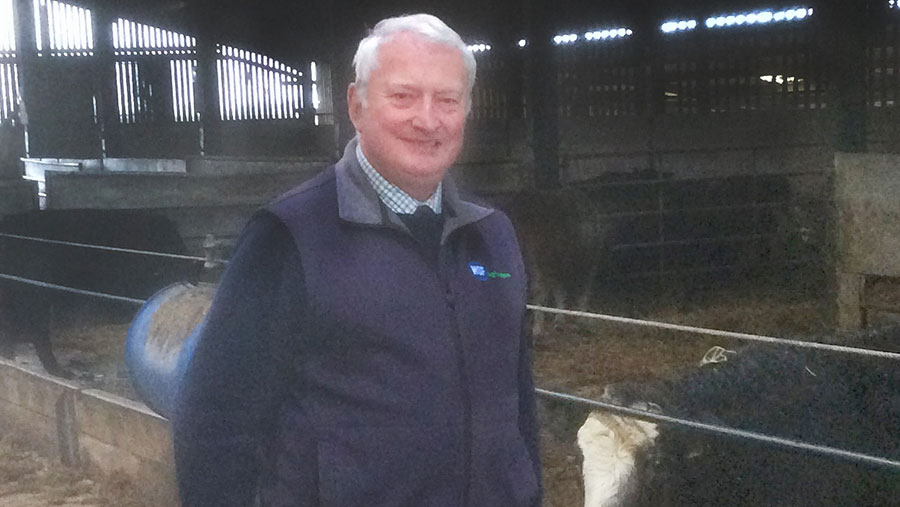Job profile: What’s it like to be a Red Tractor assessor?

Maybe it’s not exactly a red-letter day, but the annual Red Tractor audit is a very important one if you have signed up to the farm and food standards scheme.
Few farmers relish preparing for the on-farm visit (spray records, anyone?), but what’s it like to be on the other side of the fence?
Farmers Weekly asked assessor Grahame Booth to give some insight into his job.
See also: More agriculture careers advice and job profiles
Factfile
- Name: Grahame Booth
- Age: 68
- Job title: Self-employed assessor. Since 2005 I have worked for NSF, an independent public health and safety organisation, carrying out a number of assessments for them, including Red Tractor.
- Company: Grahame Booth Agricultural Consultancy, Wilton, near Salisbury in Wiltshire
Sum up your job in a sentence or two
I visit farms to physically inspect them against a comprehensive set of Red Tractor standards, covering animal welfare, food safety, traceability and environmental protection.
I complete a written report and issue either a conformance or a non-conformance certificate.
In most instances, farms are given 28 days to rectify minor non-conformances but if there is a food safety issue, such as a rat infestation in a grain store, it means immediate suspension from the scheme until the farm has corrected the problem to NSF’s satisfaction.
What does this involve day-to-day?
A lot of persuading farmers to see me. I make my own appointments and travel across the country, from Wiltshire to Aberdeen. I clock up 30,000 miles a year, so it’s a good thing that I like driving.
What do you most enjoy about your job?
Speaking to farmers. I have been in farming all my life, and visiting all manner of farms and meeting managers and owners is an ideal job for me now.
What can be the downsides?
Organising appointments and completing paperwork can be tedious – but maybe as an older chap I find it easier to put up with the boring bits.
What percentage of your job is office-based?
I keep office work to a minimum. NSF has a very good computer checklist, which allows the assessor to complete the report on the job.
What skills and qualifications are essential to the job?
Practical experience of farm management is the ideal qualification, plus technical knowledge – such as Basis and Facts – if you are assessing fresh produce and crops.
You also need to be able to speak to people easily but remain professional. Confidentiality is key for an assessor.
What experience did you have before starting?
I have 35 years in farm management, starting in the family business in Aberdeenshire and then working on estates in the Highlands and Wiltshire, followed by 13 years of farm consultancy.
I have also worked as a college lecturer and I still run courses for businessmen interfacing with farmers.
What other careers did you consider?
I was in the Territorial Army but decided to follow a career in farming.
What tips/advice would you give to someone wanting a similar role?
Ask yourself if you are self-starter. As a self-employed assessor, you are paid per appointment and have to be organised and self-motivated.
Give us an idea of a starter salary
Depending on amount of audits completed, you can earn anywhere from £4,000 to £40,000 a year on a self-employed basis.
What’s the best bit of career advice you have ever been given?
Use your experience to learn from the past, deal with what you have to do today and look forward to doing it better tomorrow.
To find out more about becoming an NSF assessor, see the NSF website
